
Fully Charged Show features 3ti’s rapid installation of the Papilio3 Solar EV Charging Hub at University of Surrey, showcasing solutions to grid upgrade challenges.

3ti’s Papilio3 Solar EV Charging Hub brings sustainable transport solutions to Segen’s training academy, supporting the next generation of renewable energy installers.

3ti has deployed two Papilio3 Smart EV Charging Hubs at the iconic Silverstone racetrack. Supporting their “Shift to Zero” sustainability strategy.




Fully Charged Show features 3ti’s rapid installation of the Papilio3 solar EV charging hub at University of Surrey.

3ti’s Papilio3 solar EV charging hub brings sustainable transport solutions to Segen’s training academy, supporting the next generation of renewable energy installers.

3ti has deployed two Papilio3 Smart EV Charging Hubs at the iconic Silverstone racetrack. Supporting their “Shift to Zero” sustainability strategy.

NHS Scotland installs its first Papilio3 EV charging hub at Raigmore Hospital, enabling clean, accessible charging for NHS Highland’s staff, patients, visitors, and growing electric fleet.

Surrey County Council installs Papilio3 EV charging hub in Guildford, supporting fleet electrification, rapid deployment, and its wider sustainability strategy using clean, renewable energy.

Wiltshire Council installs solar car park and Papilio3 EV hub at Five Rivers, cutting emissions, lowering energy costs, and supporting sustainable transport for visitors and staff.
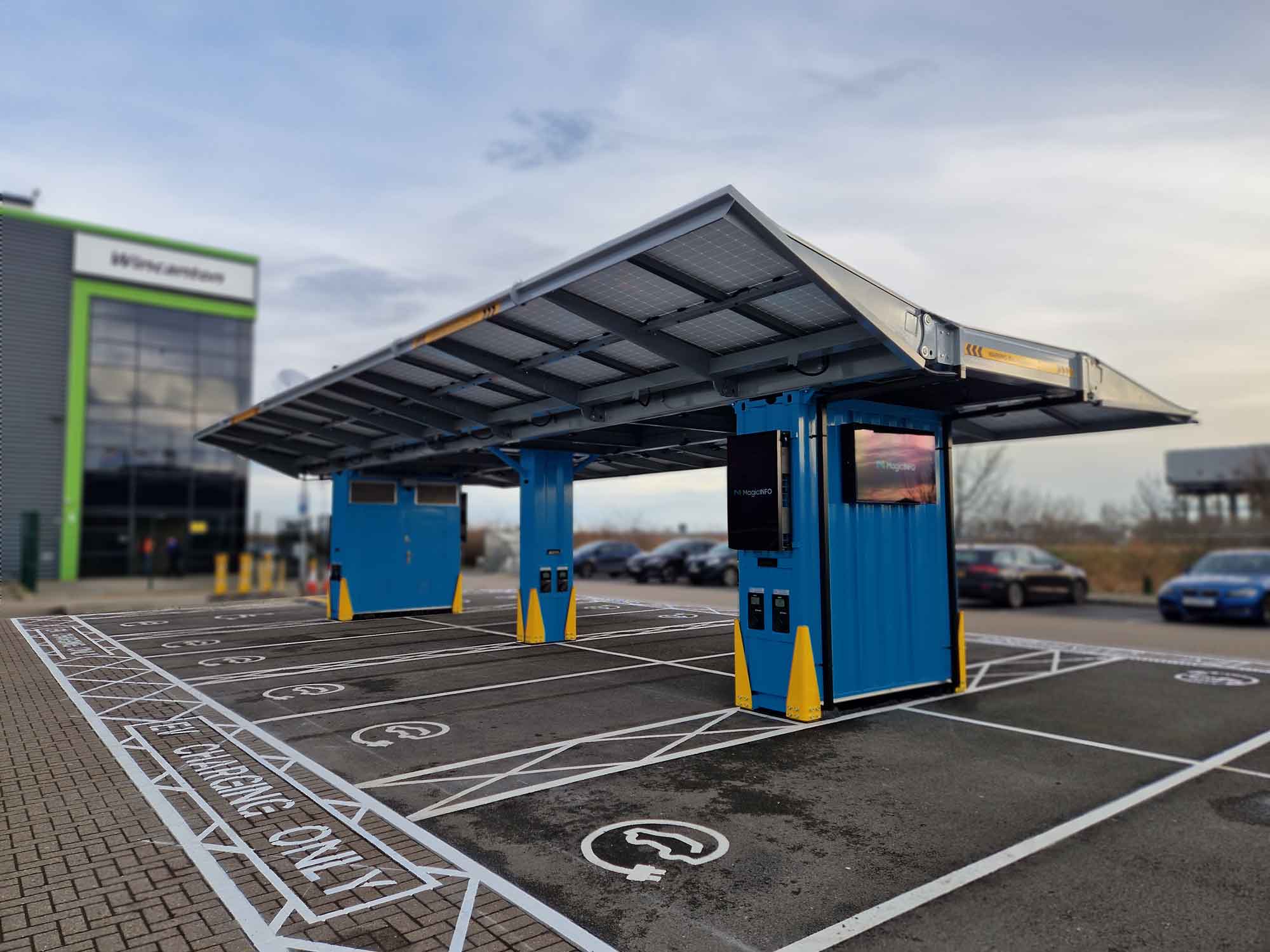
Segen, a leading UK distributor of renewable energy products, has installed a Papilio3 smart EV solar charging hub at its Training Academy and Distribution Centre. The hub provides 12 charging bays for staff and trainees, supporting Segen’s mission to accelerate the adoption of sustainable energy solutions.
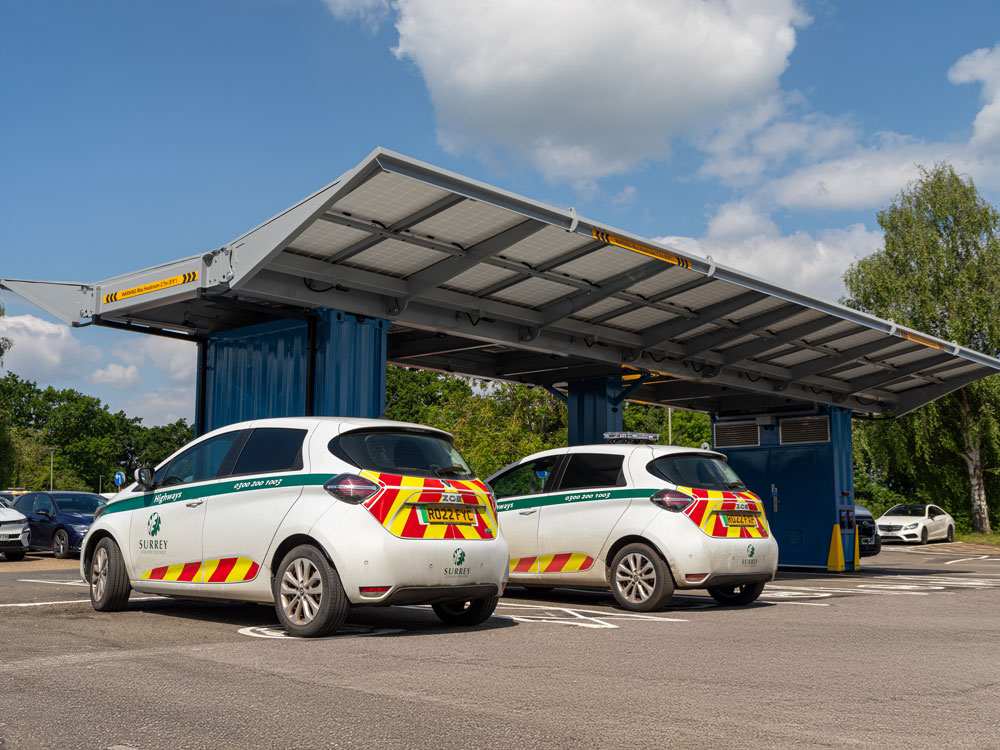
SCC’s growing electric vehicle fleet will be powered by Papilio3, supporting the council’s sustainability strategy. The solution was chosen to fulfill the urgent need for EV charging infrastructure at the site.
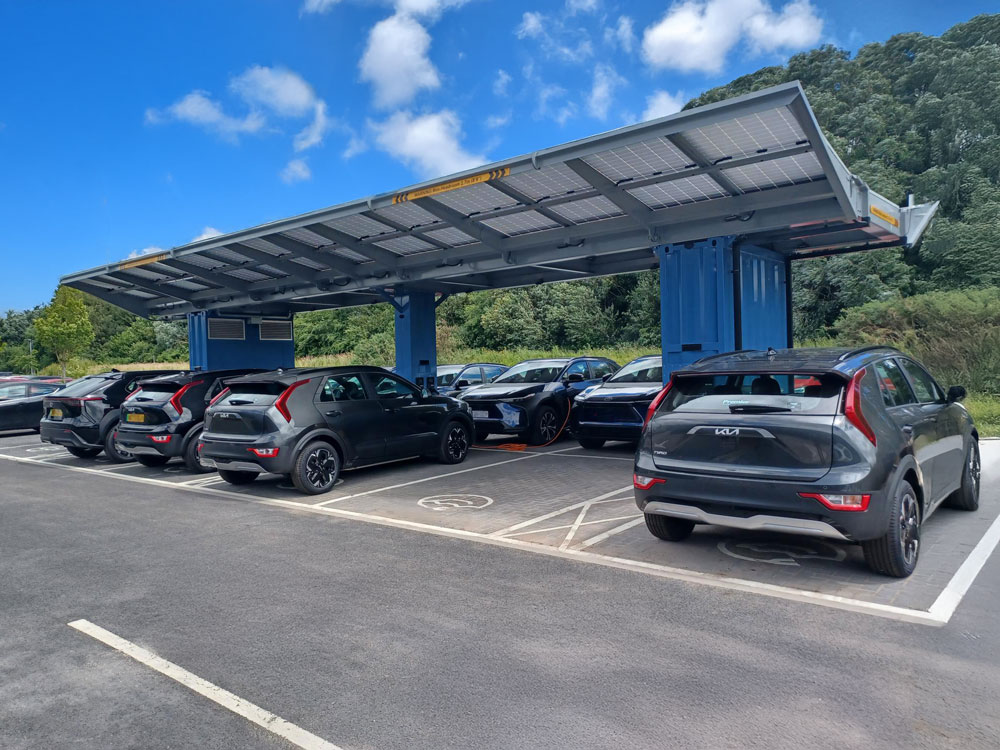
“The force’s target is to be Net Zero for all scope 1 and 2 emissions by 2040, and it is hoped exploring the use of technology such as this – which uses solar panels on its roof – will help us achieve that.”
Keith Dickinson - Director of Resources Merseyside Police
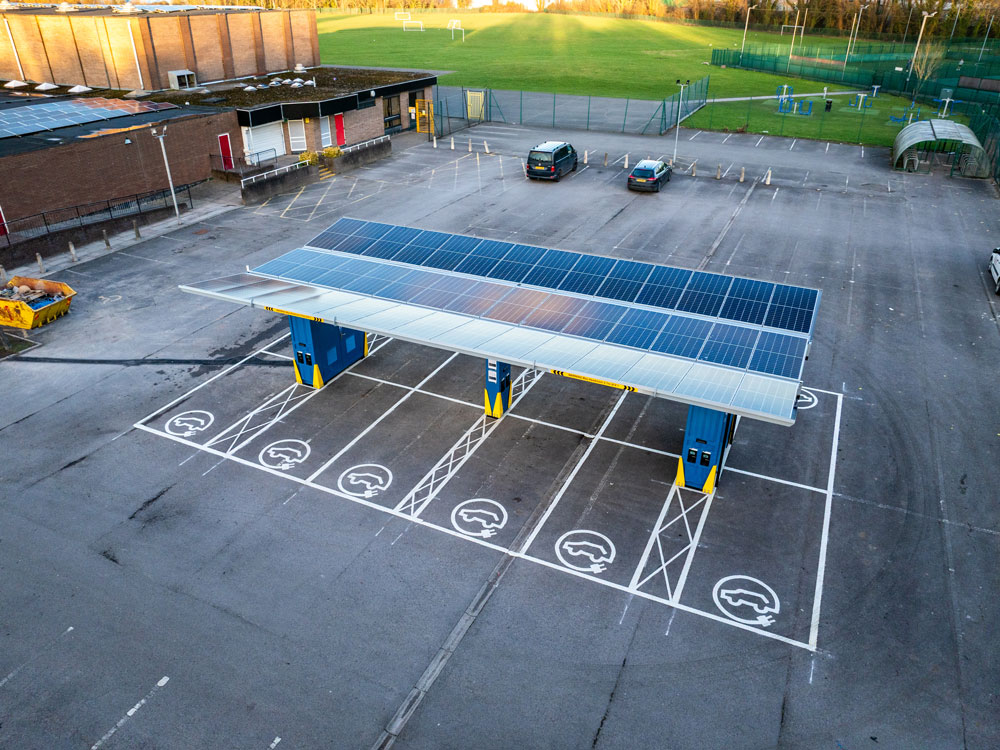
Papilio3 joins Bentley’s existing 10,000-panel solar car park, reinforcing the brand’s commitment to clean energy and low-carbon mobility.
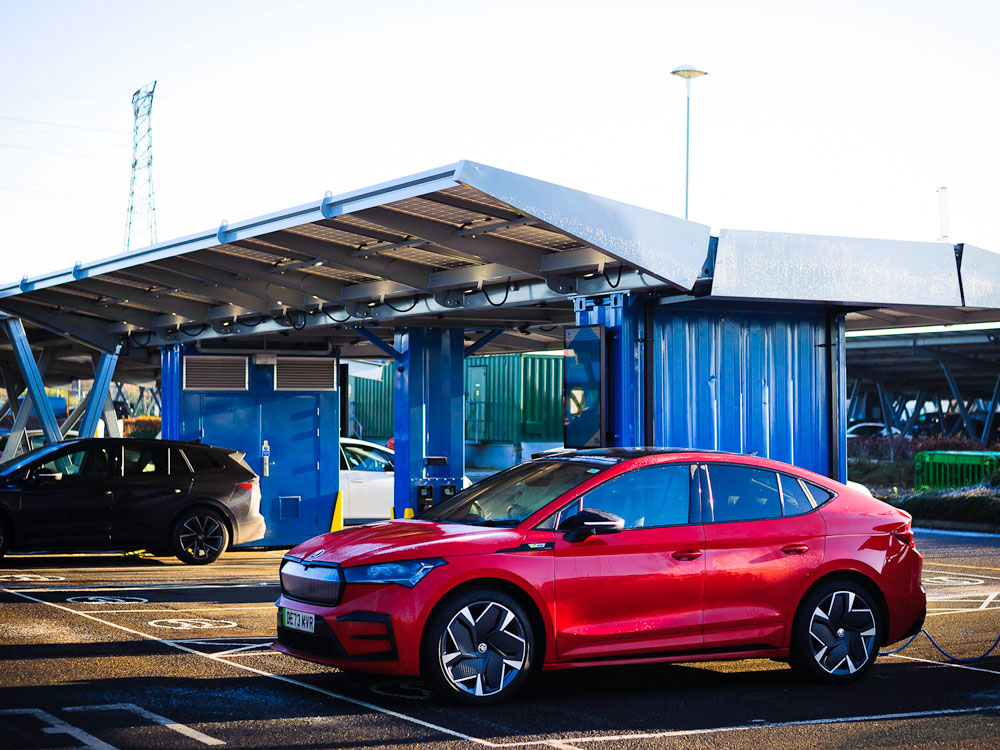
Papilio3 joins Bentley’s existing 10,000-panel solar car park, reinforcing the brand’s commitment to clean energy and low-carbon mobility.

Segen, a leading UK distributor of renewable energy products, has installed a Papilio3 smart EV solar charging hub at its Training Academy and Distribution Centre. The hub provides 12 charging bays for staff and trainees, supporting Segen’s mission to accelerate the adoption of sustainable energy solutions.

SCC’s growing electric vehicle fleet will be powered by Papilio3, supporting the council’s sustainability strategy. The solution was chosen to fulfill the urgent need for EV charging infrastructure at the site.

“The force’s target is to be Net Zero for all scope 1 and 2 emissions by 2040, and it is hoped exploring the use of technology such as this – which uses solar panels on its roof – will help us achieve that.”
Keith Dickinson - Director of Resources Merseyside Police

Papilio3 joins Bentley’s existing 10,000-panel solar car park, reinforcing the brand’s commitment to clean energy and low-carbon mobility.

Papilio3 joins Bentley’s existing 10,000-panel solar car park, reinforcing the brand’s commitment to clean energy and low-carbon mobility.
We’re really excited to have the unit in a comprehensive school in Newport, available to teachers and the public to charge, and for the youngsters to get involved and learn about solar power.
Our experience of working with 3ti has been really positive right from the start. They were very quick to respond and deal with the logistics.
Dan McCallum – Chief Executive, Awel Aman Tawe